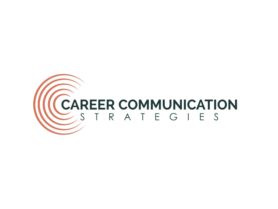The Power of Storytelling in Your Job Search: How to Stand Out and Get Hired
When you think about job searching, storytelling might not be the first thing that comes to mind. However, it’s one of the most powerful tools you can use to stand out from the competition.
Storytelling goes beyond listing your skills and job titles—imagine a hiring manager reviewing hundreds of resumes that all read the same: job titles, responsibilities, and dates. But then they come across a candidate who shares a brief story about leading a project that saved their company from a major setback. That story sticks. It connects your experiences to the value you bring to potential employers, making your resume, cover letter, and interviews more memorable and impactful. connects your experiences to the value you bring to potential employers, making your resume, cover letter, and interviews more memorable and impactful.

Why Storytelling Matters in Your Job Search
1. It Creates Connection
Humans are wired to respond to stories. A well-told story engages emotions, helps people remember details, and creates a sense of authenticity. When you share your career journey as a story, hiring managers can better understand who you are beyond the bullet points on your resume.
2. It Demonstrates Your Impact
Rather than simply stating, “I managed projects,” a story allows you to show the challenges you faced, the actions you took, and the results you achieved. This format—often referred to as the STAR method (Situation, Task, Action, Result)—is a powerful way to highlight your accomplishments.
3. It Differentiates You from Other Candidates
Many candidates have similar skills and experiences, but your unique perspective and journey set you apart. Storytelling allows you to showcase what makes you different, whether it’s your approach to problem-solving, leadership style, or ability to adapt to change.
How to Incorporate Storytelling in Your Job Search
Craft a Compelling Professional Summary
On your resume and LinkedIn profile, use your summary to tell the story of who you are as a professional. Instead of a generic statement, highlight your career trajectory, key strengths, and what drives you in your work.
For instance…
“As an IT project manager with over a decade of experience, I thrive on transforming complex challenges into streamlined solutions. My career began in software development, where I discovered my passion for leading cross-functional teams to deliver innovative projects on time and within budget.”
Use Stories in Cover Letters
Your cover letter is the perfect place to expand on a specific achievement or experience. For example, you might describe the time you joined a new team mid-project, quickly assessed the challenges, and introduced a workflow change that not only streamlined communication but also helped the team meet a tight deadline. Stories like this provide context to your accomplishments and make your contributions feel tangible and relatable to hiring managers. Start with an engaging hook—perhaps a brief anecdote about a challenge you overcame—and connect it to the value you can bring to the company.
For example…
“When faced with a failing product launch that threatened to cost our company a key client, I led a cross-departmental task force to identify the issues, implement strategic changes, and successfully relaunch the product within six weeks, resulting in a 20% increase in client retention.”
Master Storytelling in Interviews
Behavioral interview questions often begin with, “Tell me about a time when…” This is your cue to share a concise, impactful story using the STAR method. Focus on the results and what you learned from the experience.
Here’s an example…
Situation: Our team was missing deadlines on a major project.
Task: As the new project lead, I needed to identify the bottlenecks and improve efficiency.
Action: I conducted a workflow analysis, restructured team roles, and introduced agile practices.
Result: We not only met our deadlines but also increased productivity by 30% in the following quarter.
Tips for Effective Storytelling
- Be Authentic: Share genuine experiences that reflect your skills and values.
- Keep It Relevant: Tailor your stories to the job you’re applying for, focusing on skills and achievements that match the role.
- Show, Don’t Just Tell: Use vivid details to paint a picture, but be concise. Hiring managers don’t need every detail—just enough to understand the context and impact.
- Practice Your Delivery: Especially for interviews, practice telling your stories out loud. This helps with pacing and ensures you hit the key points. Consider rehearsing with a trusted friend or recording yourself to gain feedback on your tone, clarity, and confidence. These techniques can help you refine your delivery and feel more prepared for real interview situations. for interviews, practice telling your stories out loud. This helps with pacing and ensures you hit the key points.
Bringing It All Together
Storytelling isn’t just for novels or presentations; it’s a critical skill in your job search. Whether you’re applying for a competitive role in IT, engineering, or any field, your story can be the differentiator that catches a hiring manager’s attention. By framing your experiences as stories, you’ll create a stronger connection with potential employers, clearly demonstrate your value, and stand out in a competitive job market. Start reflecting on your career journey today and uncover the powerful stories that will help you land your next role.
Ready to take your job search to the next level? I work with a select number of clients to create high-impact career materials tailored for success. Schedule a consultation to see if we’re the right fit.
